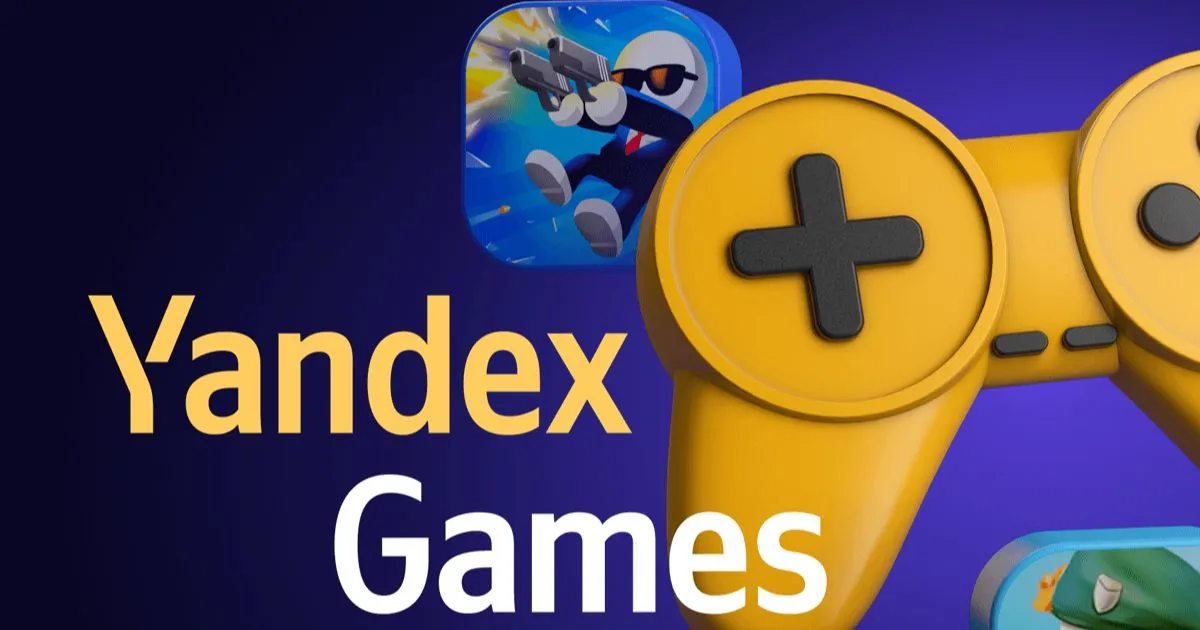Yandex games is Online gaming has come a long way from its early experimental days in the 1970s. What started as a niche part of computer science and engineering has grown into a truly global cultural phenomenon. According to the Entertainment Software Association’s 2021 report, over 50% of Americans now identify as gamers and three out of four U.S. households own video game consoles, computers, or handheld devices.
The Early Days of Multiplayer Gaming
The earliest multiplayer games date back to the 1970s on computers and mainframe systems. Some pioneering examples include Galaxy Game, developed in 1971 for the PLATO system. This allowed players to interact over ARPANET, one of the earliest iterations of the internet.
In the late 1970s and early 80s, as home computers started to gain popularity, multiplayer gaming began transitioning to these personal systems. Early adopters developed tools like the Hayes Smartmodem to allow playing games over simple dial-up connections between computers. Probably the most well-known early online PC game was Kesmai’s Air Warrior, launched commercially in 1985 on GEnie and CompuServe. This 3D combat flight simulator supported up to 32 players interacting in real-time.
Table 1: Key Early Multiplayer PC Games
| Game | Year | Platform(s) | Players | Genre |
|---|---|---|---|---|
| Galaxy Game | 1971 | PLATO System | Multi | Strategy |
| Air Warrior | 1985 | GEnie, CompuServe | 32 | Flight Sim |
| Habitat | 1986 | QuantumLink | Hundreds | Social |
| Neverwinter Nights | 1991 | AOL | Unlimited | RPG |
As online services continued expanding in the late 80s and early 90s, multiplayer gaming became more mainstream. Notable titles include the groundbreaking social virtual world Habitat in 1986 and the epic role-playing game Neverwinter Nights in 1991, one of the earliest massively multiplayer online (MMO) titles distributed through AOL.
Emergence of Online Consoles and PC Gaming Giants
The 1990s saw console gaming transition online as well. In 1992, the Super Nintendo Entertainment System (SNES) launched the modem-based Satellaview service in Japan, enabling multiplayer adaptations of classic games. Sega’s Sega Mega Drive (Genesis) supported online capabilities through utilities like XBAND starting in 1994.
On PCs, online services continued driving the evolution of multiplayer gaming. America Online introduced AOL Games in 1993, quickly becoming a destination for countless game players. Major series launched during this period included Diablo in 1997 and Starcraft in 1998, pioneering the real-time strategy genre and esports competitions.
This era also saw the rise of dedicated gaming platforms that helped define online play for decades to come. In September 1998, Sony launched the first mainstream online console with PlayStation and its precursor to Xbox Live, the PlayStation Network. Meanwhile, Microsoft released the original Xbox in 2001, focused on internet and multiplayer capabilities from the start.
By the late 90s and early 2000s, PC gaming had consolidated around a handful of dominant platforms and publishers. Notable companies included Valve with their digital distribution platform Steam, launched in 2003, and Blizzard Entertainment, known for mega-hits like World of Warcraft, which launched in 2004 and became the most successful MMO ever. These platforms and associated franchises helped cement gaming as a major online cultural force.
Click on this link to get more information “Landslide Lyrics“
Emergence of Mobile and Casual Gaming
As smartphones proliferated in the late 2000s, a new era of mobile and casual gaming arrived. Key catalysts included the iPhone App Store’s 2008 launch and social/casual games like Farmville appearing on Facebook in 2009. These titles featured simple, accessible design and social/multiplayer components, appealing to broader audiences than traditional games.
Leading this mobile revolution were companies like Zynga, creator of FarmVille. Their games emphasized viral growth through social networks, popularizing the “freemium” model of free-to-play games supported by in-app purchases. This business model proved immensely lucrative and disrupted the industry, inspiring waves of imitators across mobile platforms. Yandex
By the 2010s, mobile gaming had surpassed other platforms in revenues and player numbers, according to analyses from Newzoo. Casual multiplayer games from firms like King Digital (Candy Crush Saga) dominated top-grossing charts. More “core” games also migrated to smartphones, with popular multiplayer shooters and MOBAs emerging. Simultaneously, augmented reality introduced location-based social multiplayer through games like Pokémon GO.
This trend towards ubiquitous, socially-connected “games as a service” carried online gaming deeper into mainstream popular culture than ever before, with over 50% of the global population now identifying as gamers according to a 2021 ESA study. But the foundations established by pioneering online games from decades past still underpin the industry today. Yandex
Cooking Tips “Bitehubs.com“
Modern Online Gaming Landscape
In the second half, I will discuss the modern landscape of online gaming, including:
- Continued growth and revenue models of leading PC and console platforms like Steam and Xbox Live
- Emergence of cross-platform “metaverses” and the ongoing development of virtual reality
- eSports rising as a mainstream spectator activity
- Impact of games as a storytelling medium and for online communities
- Ongoing opportunities and challenges around game design, business models, and social issues
- Yandex
Faqs
Q: When did multiplayer gaming become popular online?
A: While experiments date back to the 1970s, online multiplayer gaming really took off in the 1990s as consoles and PCs gained stronger internet connectivity. Landmark titles in that decade like Diablo, Starcraft, and Everquest helped cement the concept and establish genres still popular today.
Q: What devices are mostly used for online gaming today?
A: Smartphones have surged to become the most-used gaming platform worldwide in recent years, thanks to the popularity of casual titles on iOS and Android. But dedicated gaming PCs and consoles like PlayStation and Xbox are still hugely popular for “core” franchises, along with cross-platform play. Virtual and augmented reality headsets also show promise for rich online worlds.
Q: How much money does the online gaming industry make?
A: Revenues from online games, microtransactions, DLC and related areas helped push the global gaming industry to over $300 billion in 2023 according to market analysts. Mobile gaming alone generates over $100 billion annually. Subscription platforms like Xbox Game Pass are also fueling significant growth. Yandex
Q: Are video games addictive?
A: While some individuals may experience compulsive behaviors, major health organizations do not classify “gaming disorder” as a medical condition. Most players enjoy gaming casually as entertainment without harmful effects. As with any activity, it’s important to maintain a balanced lifestyle.Yandex
Q: Is online gaming always free?
A: No, some games involve upfront costs or ongoing subscription fees. However, many, especially mobile games, utilize “freemium” models where the base game is free but optional in-app purchases provide advantages. Platforms also host free-to-play titles supported by advertisements or seasonal battle passes for extra content. Yandex
Conclusion
The dynamic world of online gaming has come so far from its early experimental years yet continues progressing rapidly each day. Pioneers in the 1970s and 80s laid the foundation for collaborative play that exploded in scale and scope throughout the 90s and 2000s. Smartphones took these interactions anywhere and everywhere through casual, socially viral titles. Meanwhile, dedicated platforms amassed huge global player communities around blockbuster franchises and tournaments.
Looking ahead, the continued convergence of gaming with virtual and augmented realities offers untold potential for rich, immersive online worlds. Metaverses integrating social presence, play, and utility envision entirely new dimensions of human connection through shared virtual spaces. At the same time, blockchain technologies may disrupt business models while enhancing player ownership over game economies and assets. Yandex
More than ever, games serve as creative storytelling mediums and platforms to bring people together from all backgrounds for entertainment and competition and build understanding across borders. Challenges around inclusiveness, profit motives versus player well-being, and regulating new models will require ongoing discussion. But if history is any guide, developers and communities will continue pushing boundaries to realize gaming’s full capacity for forging meaningful relationships worldwide through play.
The rise of online gaming over recent decades stands as one of the most extraordinary cultural shifts resulting from interactive technology. What started as an isolated experiment has blossomed into a profound social phenomenon influencing all corners of our lives. While the future remains unwritten, one thing is clear – this impact is only just beginning. Yandex




